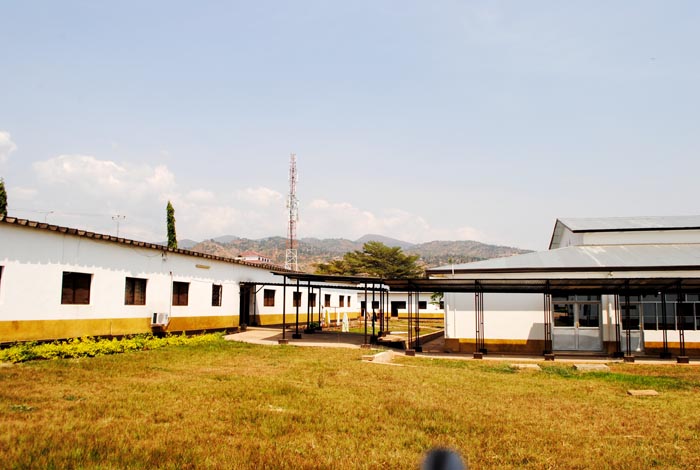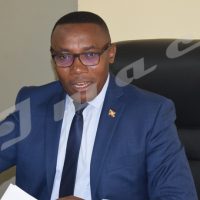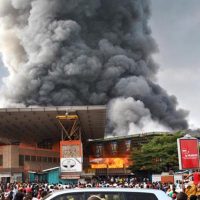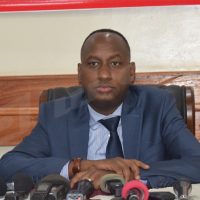Burundian soldiers, fighting in Somalia and elsewhere in Africa, receive medical treatment in Kenya or South Africa when they are injured. The Kamenge Military Hospital wants to treat them at home.-By Diane Uwimana

One of the blocs(left hand) that will be transformed into the adapted emergency and intensive care which are near the operating rooms and radiology department (right hand) ©Iwacu
The main challenge that Burundian soldiers face when they are in hospitals abroad is the linguistic barrier. “They do not express themselves freely as the two countries use English as their main language”, says Marc Nimburanira, the Director General of the Kamenge Military Hospital.
He goes on saying that it is better for recovery to be surrounded by their families. “While abroad, nobody comes to care for them.” Patients generally improve quicker when they feel at ease. Even something as simple as familiar food will help them recuperate.
Dr Nimburanira mentions that the Kamenge Military Hospital has 14 specialist doctors, 21 generalist doctors, 23 high technicians and 143 nurses. “They are trained in advanced support of traumatic emergencies, they will work hard to protect and cure these soldiers”, Dr Nimburanira says.
He feels the hospital is ready to care for the country’s wounded soldiers. However, some work remains to be done. “The United Nations appraises the kind of hospitals that are able to receive these kind of patients”, Dr Nimburanira points out. He indicates that the hospital, at present, does not hit all the marks. “The United Nations jury considers a maximum of 170 points. In order to be eligible, you must have at least two thirds, i.e. 113 out of 170 points. The Kamenge Hospital marks 99 out of 170.”
The institution lacks specialized equipment and infrastructure, but that will change soon. “The Government of the Netherlands has recently promised to transform one of our blocs into a specialized emergency and intensive care unit, near the operating rooms and radiology department”, Dr Nimburanira explains.
“When the troops are treated at home, the country also gains something. The fees previously paid abroad will enter in the country”, Dr Nimburanira ensures. One year from now, the hospital will be able to receive the Burundian troops.



















 IWACU Open Data
IWACU Open Data

